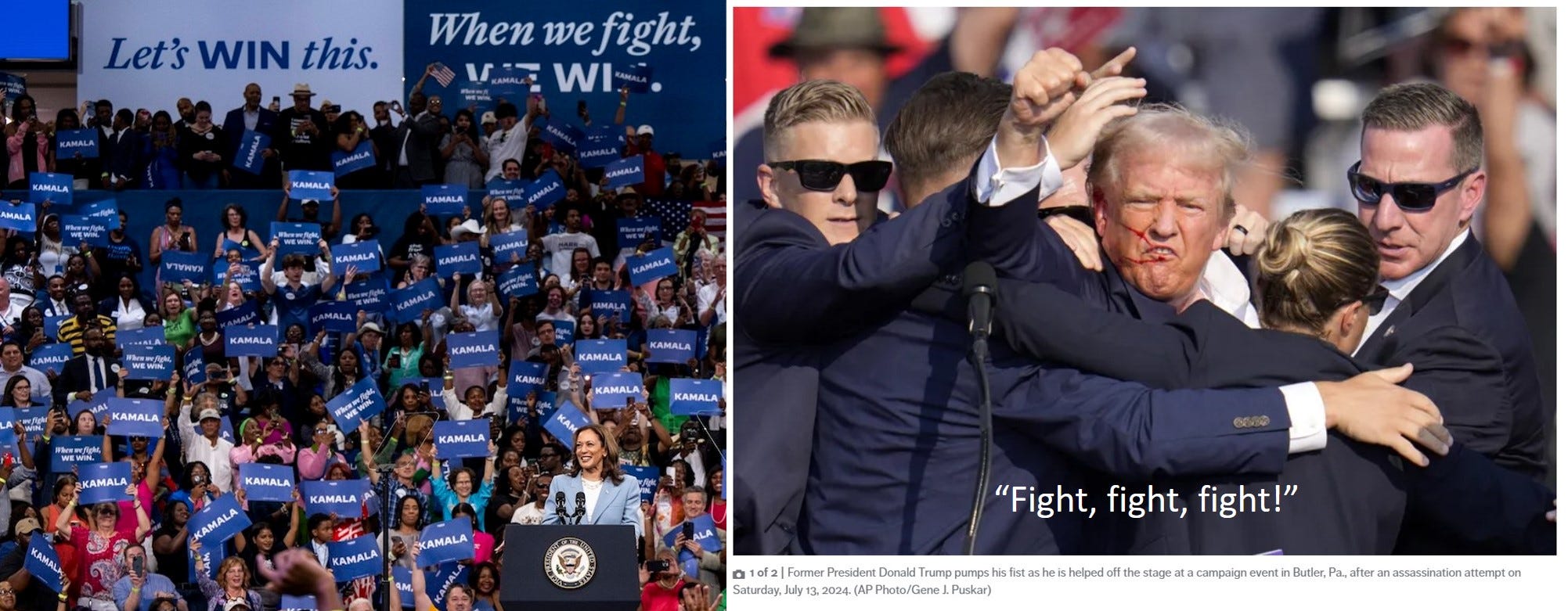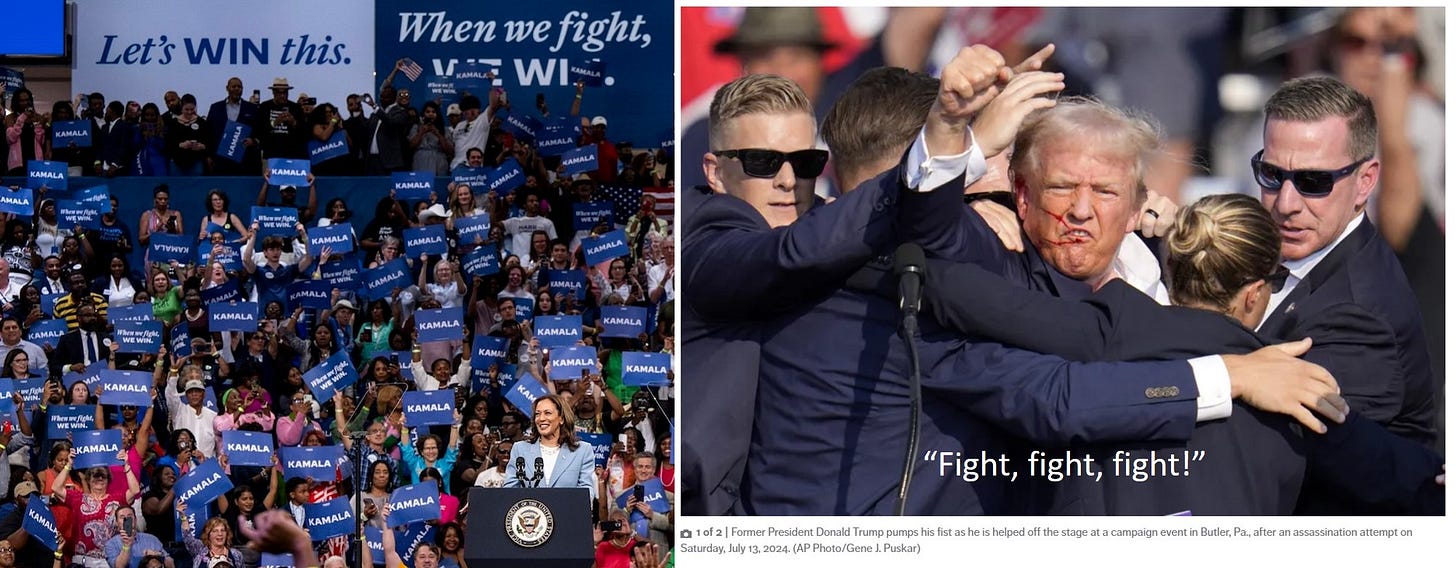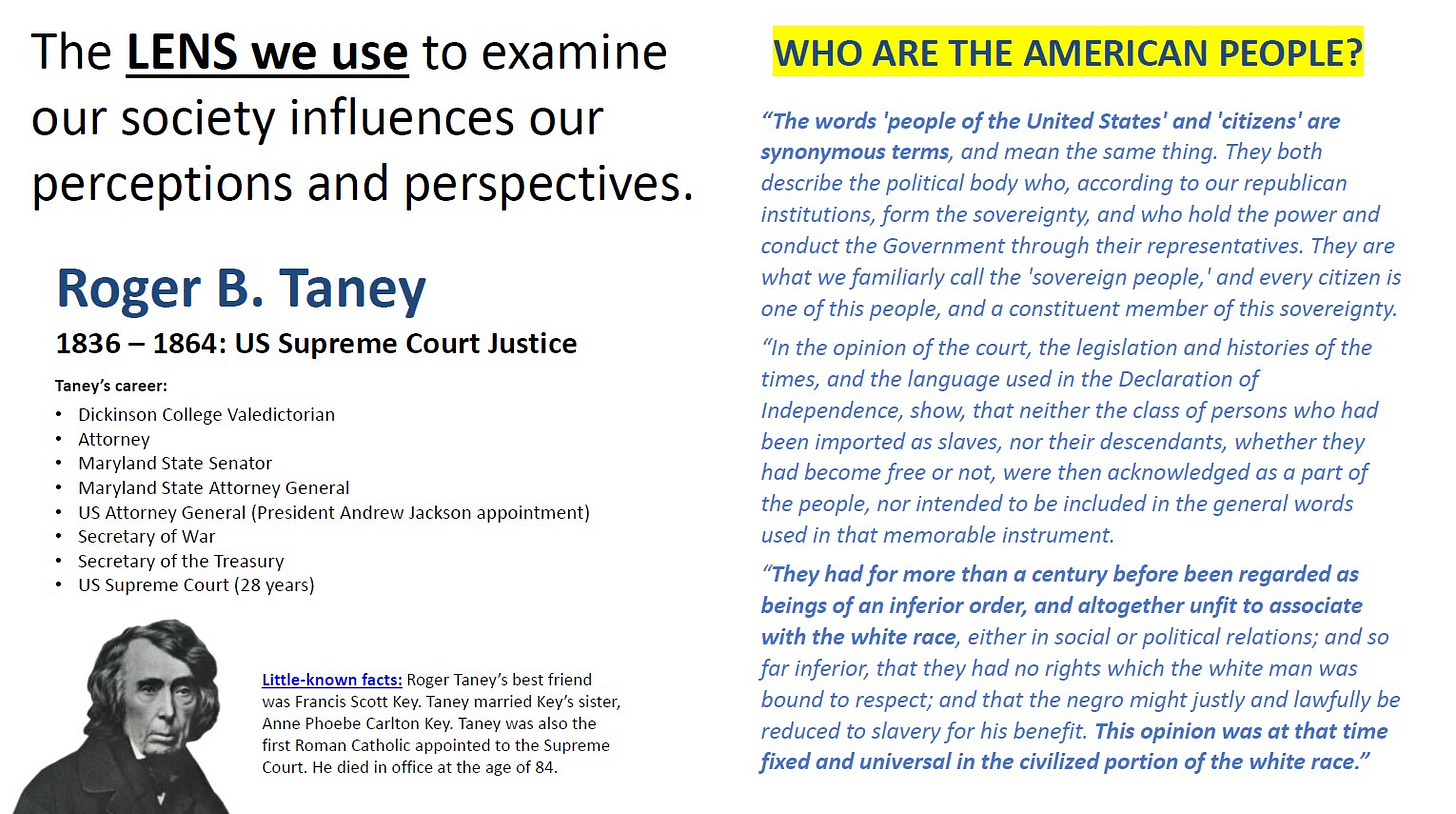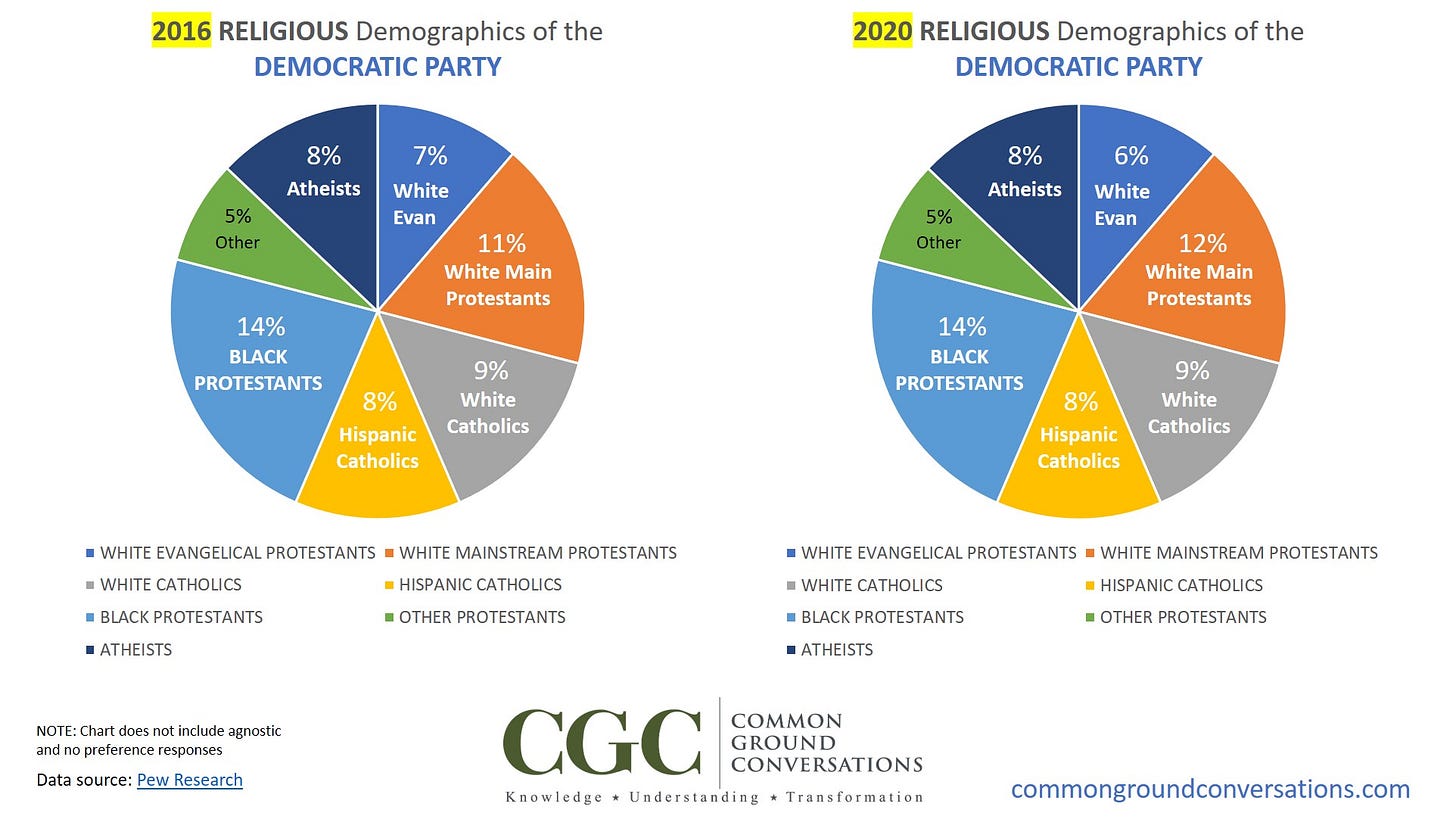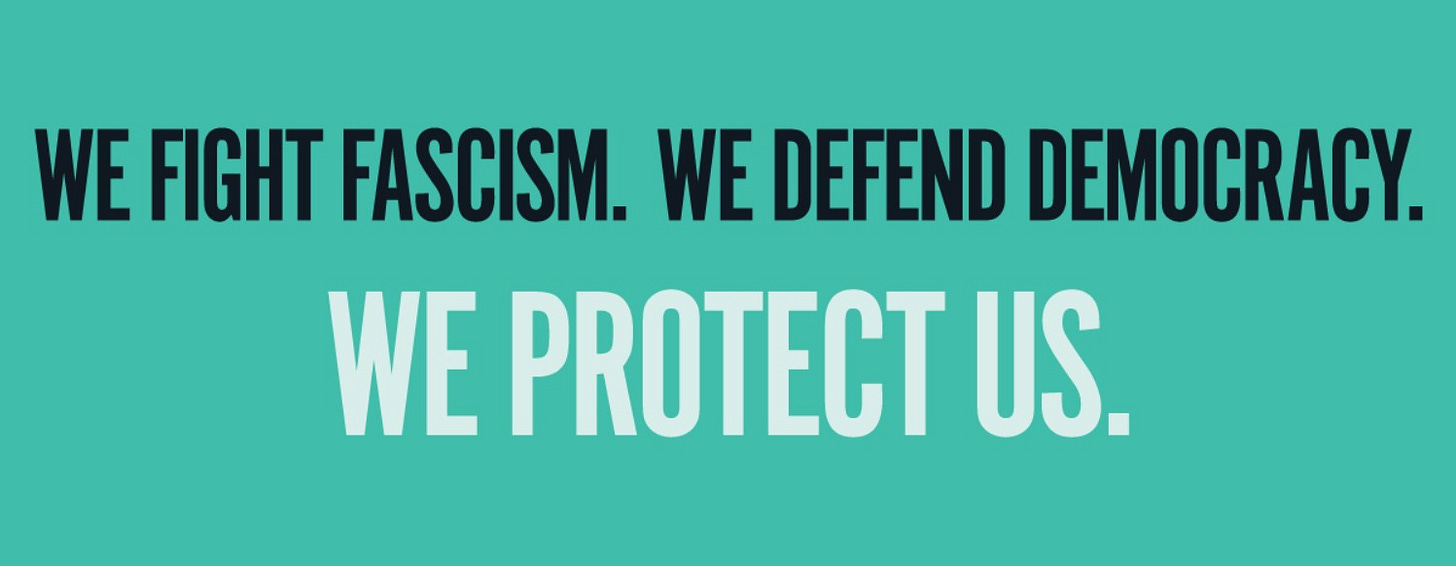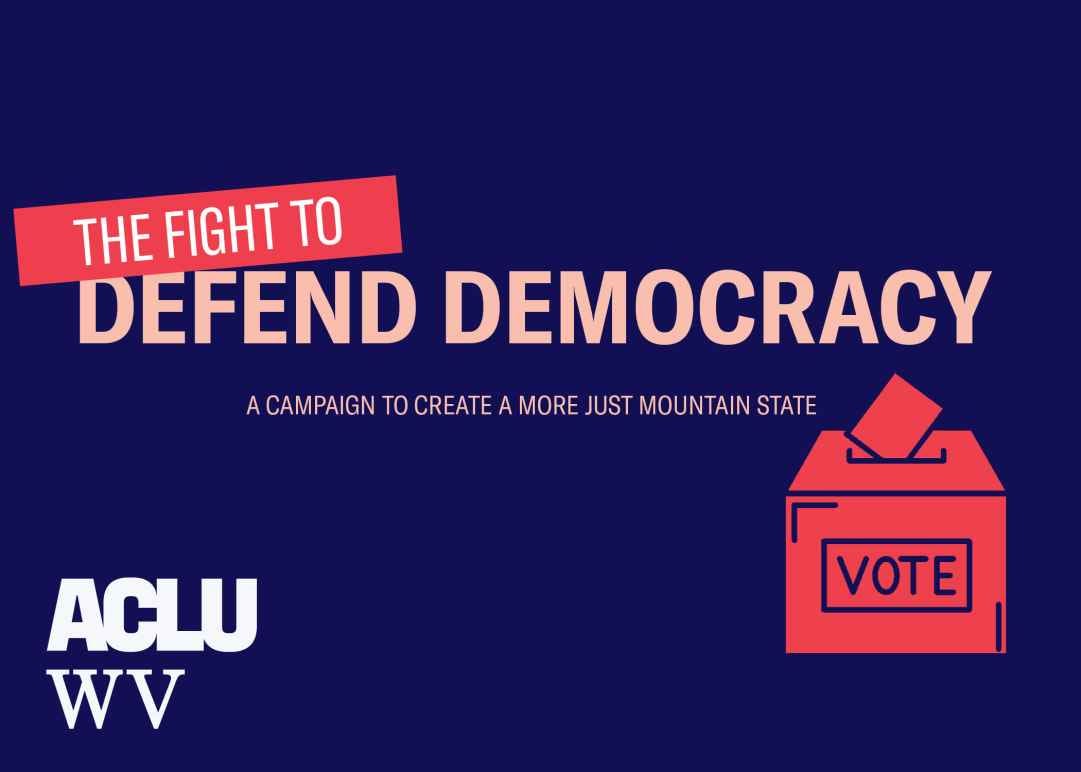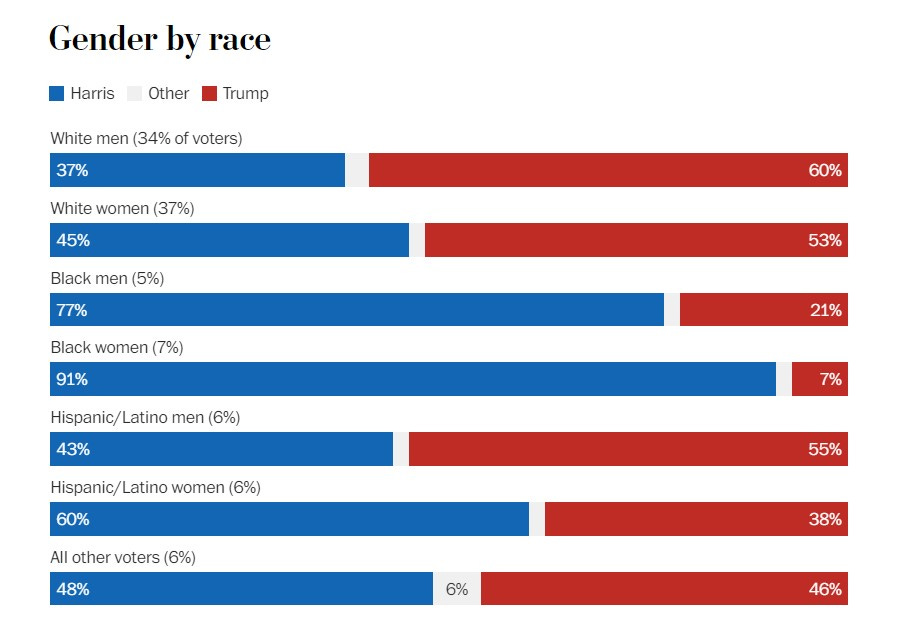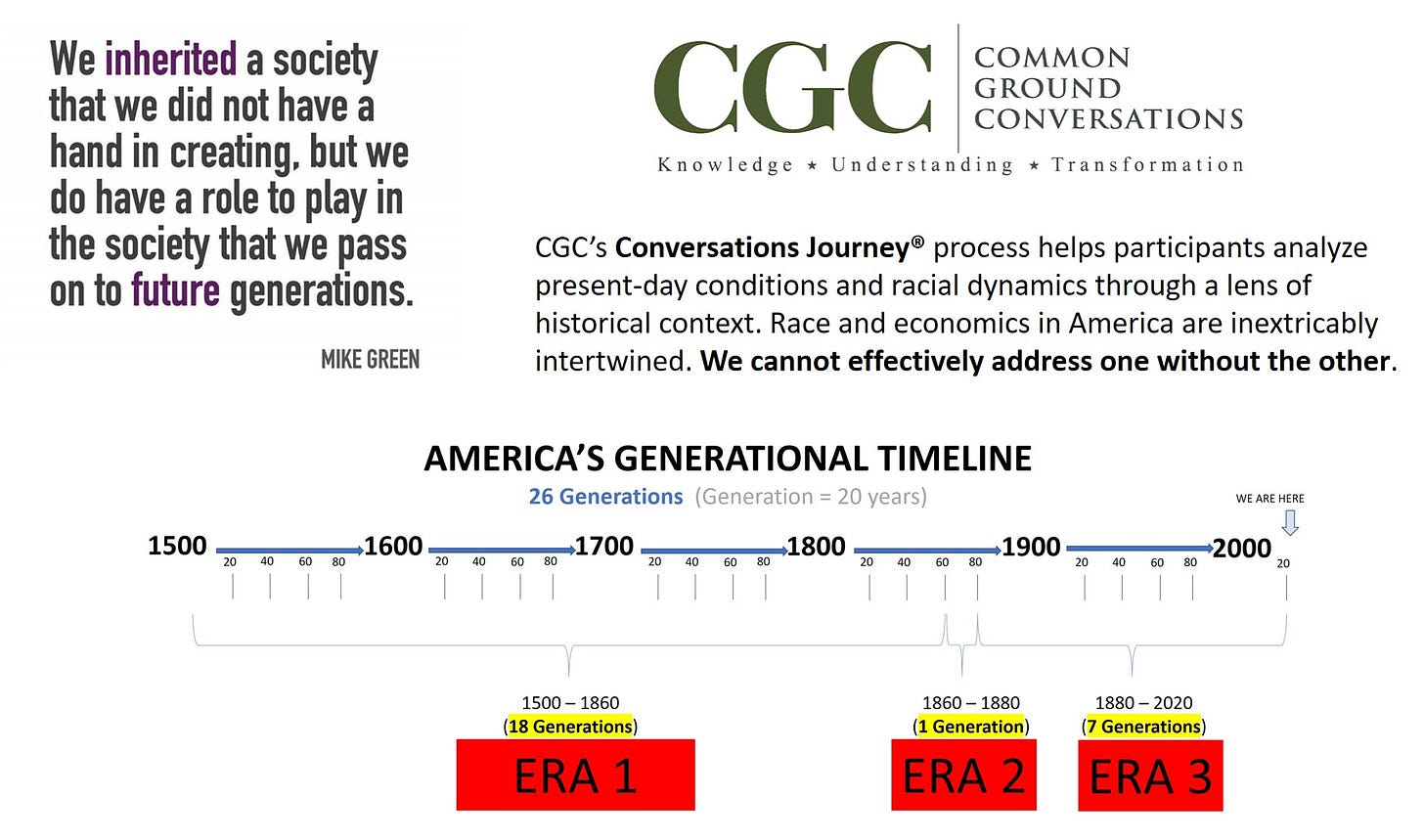CGC Journal - November 2024
We're Building a Co-learning Community of Empathetic Societal Change Agents
NOVEMBER 2024 | ISSUE 16
Building common ground: What vision of America are you fighting for?
TABLE OF CONTENTS:
Current Events - Building common ground after the fight
Emily’s Corner - When we dehumanize, we miss the humanity
Talking With Kids - What is politics?
Barbara’s Perspective - How I found my WHY…
African Insights - Achieving optimal intellectual health
Recommended Resources - New resources recommended every month
THE CGC JOURNAL HAS BEEN PUBLISHING MORE THAN YEAR!
SEE BACK ISSUES TO ADD MORE LINKED RESOURCES TO YOUR LIBRARY.
Finding Common Ground After the Fight
Over the past several months of political messaging, we have heard a lot of F-words. The most prominent has been “FIGHT.”
In the immediate aftermath of a shooting at a Donald Trump rally in Butler, Pennsylvania that killed one spectator and wounded Trump, he raised his fist and shouted “fight, fight, fight.” That slogan was added to his MAGA campaign messaging.
In the aftermath of the presidential debate, Vice President Kamala Harris’ campaign began a meteoric rise in popularity. Her rallies were immense and the atmosphere electric. A new slogan was added: “When we fight, we win!”
So, what were both campaigns fighting for?
The answer is evident … if we are curious enough to investigate and conduct a process of honest and objective critical inquiry. The response that constituencies on both sides provided offers clarity and understanding … albeit not necessarily agreement.
MAGA’S FIGHT
MAGA faithful seek to preserve the culture of a White Christian America they see rooted in the founding documents and the original country envisioned by their founding fathers. That society, which was established in the antebellum era as a whites-only national citizenry, was disrupted by a Civil War.
In the aftermath of that internal conflict, the former White America was redesigned and reconstructed with a series of constitutional amendments that overrode states rights. The “Radical” White Republicans in Congress leveraged the power of the federal government to center and prioritize the political and economic empowerment of Black people. This federal overreach is still a source of contention today.
And in an unprecedented move, White Radicals in Congress changed the laws to expand the citizenry to include nonwhite populations. They extended the right to vote to Black men in 1870, which opened the door to political power for Black people who became Black Americans in 1868 with the 14th amendment.
This disruption to the former American way of life was untenable for a majority of White America. And the conservative/confederate movement to conserve and preserve the ideals of an American culture washed over the nation in violent waves that took the lives of tens of thousands of Black Americans and their White allies over the course of a century following the changes of the constitution in 1868 and 1870. This is the ongoing struggle over the future of America that we all inherited.
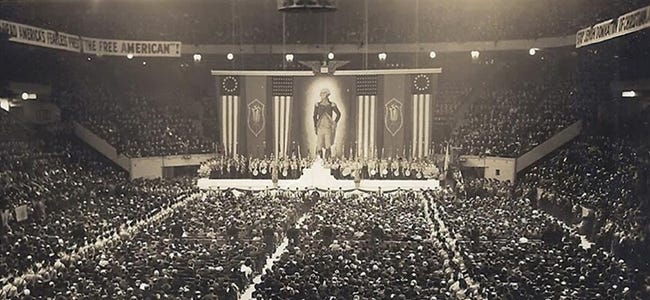
In 1939, a confluence of 20,000 White Christian nationalists, constitutionalists, federalists, and fascists convened in Madison Square Garden to speak to their vision of a 20th century White America.
The MAGA faithful replicated the 1939 MSG rally with a 21st century reminder during the closing days of the Trump campaign. The New York Times called it “A Closing Carnival of Grievances, Misogyny and Racism.” The American Presidency project archives a historical record of Trump grievances in tweets.
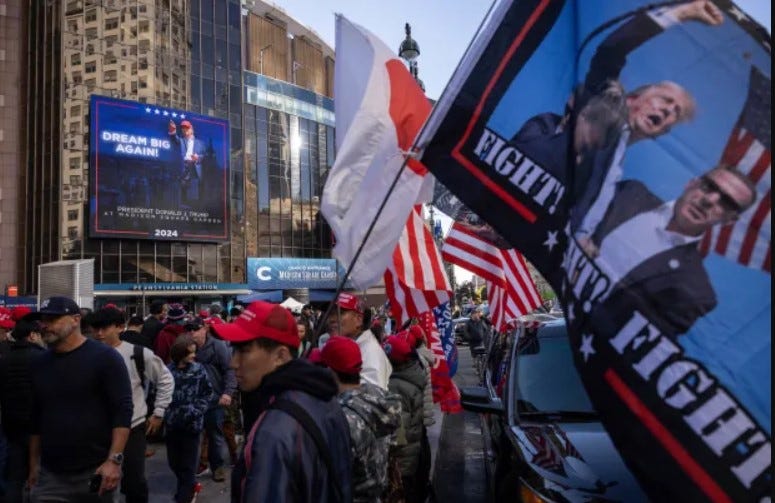
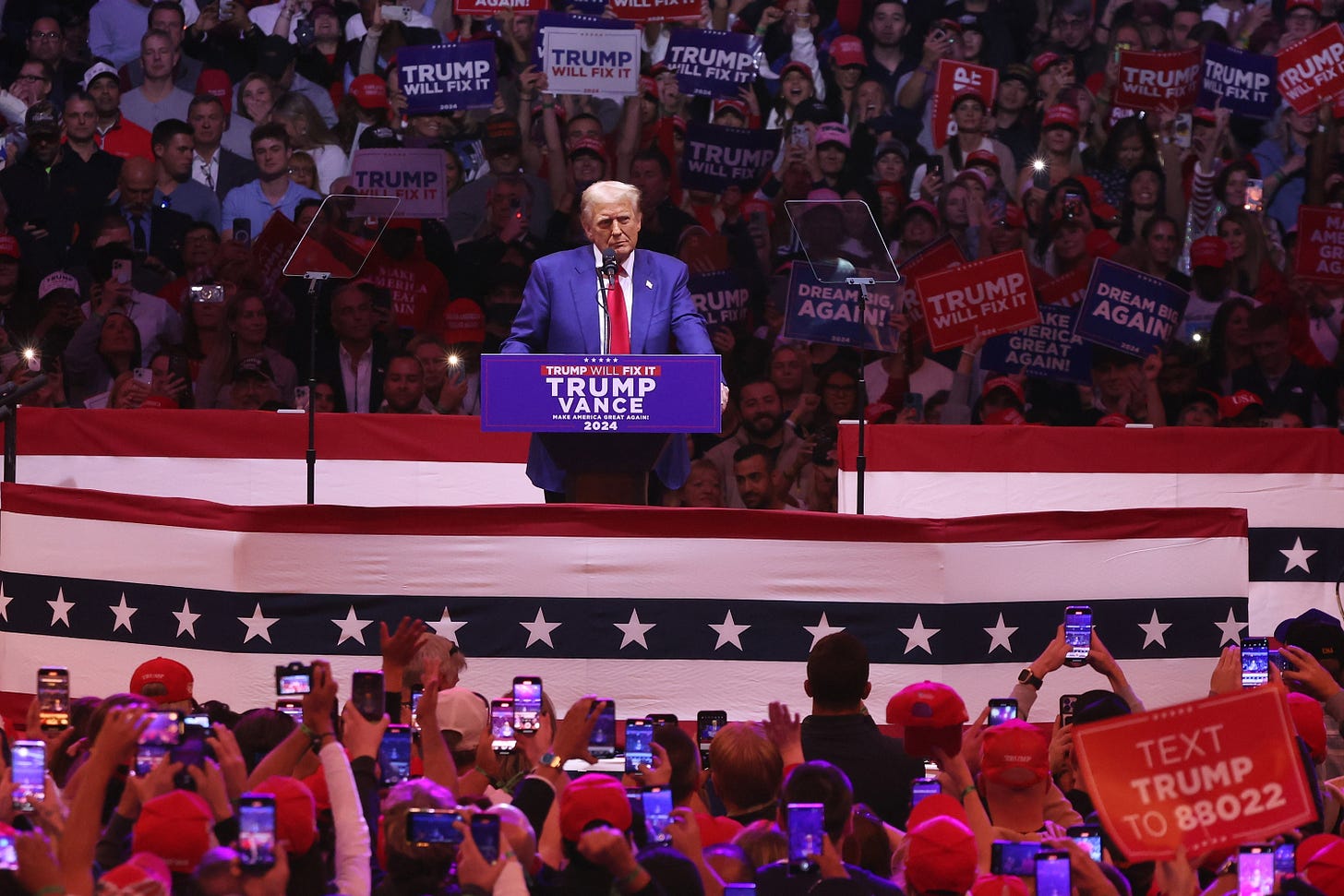
MAGA Republicans see Trump as a symbol of strength and resolve to restore the nation to an era of past glory. The New York Times wrote: “Trump Promises to Bring About a New Era of Christian Power.”
It is essential to understand in detail what Christian MAGA supporters envision as a future for the nation, whether we agree with the vision or not. After all, the Democratic Party is primarily comprised of Christian voters as well.
KAMALA’S FIGHT
On the other side of that equation are Black women, who represent the largest nonwhite voting demographic in America. When Kamala announced her run for POTUS and was endorsed by President Joe Biden, the first voices of support that rose up within hours were the voices of a well-organized group of Black women.
Black women also represent the core foundation of a disruptive progressive movement that envisions a more equitable and Inclusive America that differs from any point in the 19th and 20th centuries. In the 19th century, Black women like Harriet Tubman, were on the front lines of fighting for the freedom of Black people during the era between 1808, when Congress banned the practice of human trafficking and 1865, when Black people fought and won their freedom during the Civil War.
White America has forgotten how the Black population ballooned from 1 million population according to the 1810 Census, to 4 million by the end of the Civil War. But Black women have not. That was only eight generations ago. During those 55 years, Black women were subjected to the whims of White men who had governance over their bodies, as they had been since 1619. The previous eras of casual rape of Black women was accelerated and fueled by the engine of an additional economic motive for White men who oversaw a systemic culture of rape, which produced more “property” they could exploit for their own economic gain.
Following the Civil War, Black women, alongside Black men, sought to build homes, communities, businesses, schools and universities, even entire cities in which they could nurture and raise families in safe communities and become productive new citizens of America. Those efforts were resisted by a recalcitrant and resentful White America that wanted “their country” back. And Black women found themselves in a societal war with a much larger population of White men and women over culture, economics, and political power to control the future of America.
In 1920, when White women received the right to vote through the 19th amendment, Black women found themselves once again left behind to fend for their own rights. Meanwhile White women benefited from newfound rights and expanded privileges of living in newly developed suburbia while Black families and communities were systemically diminished, damaged, and destroyed.
By 1964, Black women like Fannie Lou Hamer and Diane Nash were following in the footsteps of Black women like Ida B. Wells, Mary McCleod Bethune, Dorothy Height, Rosa Parks, Coretta Scott King, Dorothy Cotton, and many others. They sought to change the political dynamics to support a more progressive movement toward creating conditions conducive to equitable access to the American dream of citizenship, ownership and prosperity for all. Such disruptions to the status quo of a racialized white supremacist society were met with hostility and violence.
IRONIC COMMON GROUND: FEAR
The irony is that in this most recent election, the Trump and Harris campaigns were both fighting for a vision of two very different American futures, yet employed a common strategy to influence their constituencies. It was another F-word: Fear.
MAGA Republicans fear a permanent loss of a nostalgic era in U.S. history, and promoted messaging that Trump was the God-ordained savior for an America that was once great, but had lost its way due to the encroachment of multiculturalism, variations in lifestyles, and an invasion of nonwhite immigrants across the southern border.
The primary goal of the MAGA message was to resonate with the FEAR that emanates among a majority of White Americans of encroachment of a racial demographic shift that threatens to permanently change the culture of White America and undermine America’s White male power and supremacy.
The Harris-Walz campaign positioned its primary message as a fear of losing democracy. It built upon the message of defending and protecting democracy which was the constant refrain of President Joe Biden before he stepped out of the race and endorsed Vice President Kamala Harris.
WHAT ARE YOU FIGHTING FOR?
Another irony of the competing election campaigns is that both were fighting for the same outcome: an advantage in America’s culture war.
The Hill published a piece earlier this year titled, “For MAGA, it’s the culture, stupid,” written by Bill Schneider, an emeritus professor at the School of Policy and Government at George Mason University and author of “Standoff: How America Became Ungovernable.” Schneider compared his observations of Trump’s MAGA movement to the Democratic Party strategist, James Carville, who was once famously advised Democrats during the Bill Clinton campaign to stay on a singular keep-it-simple-stupid (KISS) campaign message, “It’s the economy, stupid,” Carville said. For MAGA faithful, it’s the culture (stupid).
Schneider wrote:
“Trump is a populist, and populism thrives on resentment. It comes in two varieties. Left-wing populism is economic; it’s driven by resentment of the rich. Right-wing populism is cultural; it’s driven by resentment of the educated elite.
“Trump’s conservatism, like that of the MAGA crowd, is mostly cultural. His key issue for 2024 is the same one that first propelled him to prominence in 2016: immigration.
“The surge of illegal immigrants is deeply threatening to his supporters. That reaction is nothing new. Throughout American history, every large-scale influx of immigrants has generated a political backlash: anti-Catholic, anti-Asian, anti-Semitic.
“It’s not so much an economic challenge. Immigrants are desperately needed to fill jobs and pay taxes. It’s a cultural challenge. Immigrants often bring different political values.
“Immigrants are important for the U.S. economy. Countries like Japan that severely restrict immigration have a rapidly aging population. In the U.S., working-age immigrants may save the economy. But they threaten the culture.
“What drives the MAGA movement isn’t the economy. It’s the culture, stupid.”
The Claremont Institute agrees. It has long featured intellectual discourse about the threat of multiculturalism to America. But this mindset is ignored by those who are proponents of advancing the ideals of a multicultural society. Such ideals are anathema to the MAGA faithful.
Black women are leading the efforts to change the political dynamic in the 21st century to redesign, reform and reconstruct the federal, state, and local laws, policies and systems that can create conditions necessary for a broader scope of the American population to achieve their dreams in a more equitable and Inclusive America for a 21st century multicultural society.
Standing on the other side of the aisle, in opposition to 91% of Black women who are aligned with the historic battles of their ancestors, is a majority of White women who were also shut out of the levers of America’s political power until 1920.
Despite the common ground of concerns that Black and White women have for children, education, healthcare, bodily autonomy, safety, community, environment, economics, equal opportunity/compensation, and more … a majority of White women in each of the presidential elections featuring Trump have aligned with the majority of White men. This trend is not reserved for Trump alone. It is evident in the data across the past eight generations.
Since White women represent the largest voting demographic in America, and Black women represent the largest nonwhite voting demographic, is it possible that Black and White women could together bring about an end to the multigenerational cultural war that manifests in our political power dynamics by seeking to find a common ground of understanding?
We may not find complete agreement on the future we envision for all children in America, but we can only find a common ground of understanding by being curious, honestly transparent, and committedly engaged in a process of critical inquiry in which we learn together. This is one way to reduce fear, anxiety and division that is exacerbated by messaging campaigns that demonize, diminish and damage people with whom we disagree.
EMILY’S CORNER
Emily Corner is a place of honest sharing; of reflections and insights and experiences that are unfolding in my journey as a co-learner. I would love to hear your thoughts and ideas - feel free to reply to this email. I will read all that you share.
When we dehumanize, we miss the humanity
Recently, I was sitting on the sidelines of one of my son’s sports practices, and one of the moms said to me,
“Can I ask you a question?”
“Of course!”
She then shared that she knows the work that Mike and I do, and wanted to seek my thoughts on some concerns she was navigating.
How should she handle when she hears her children repeating words and phrases that are stereotypical, slang, racial slurs?
I walked with her through a conversation of exploration; I encouraged her to engage her children in considering: how do these words honor the humanity of all people?
If we believe that all humans are made in the image of God; that every single one has inestimable value, then when we make statements that are stereotypical, we ignore and completely miss their humanity and value.
Broad, categorical statements that broad brush whole segments of people, are not only grossly inaccurate but keep us from seeing each person within that group … their gifts, their unique passions and talents, their value.
We then spoke about her child in particular … I encouraged her to consider the particular gifts and inclinations of this child: they are passionate about justice - so how can she guide them to use that impulse and inclination for *good*? The same way that this child protests loudly over an unfair call by a ref in a game or unkind play from an opposing team - how can they use that to discern unfair and cruel stereotyping that happens around them?
At the end of our conversation, after she’d been taking notes in her phone, she said that she’d be writing words from our conversation on her whiteboard at home …
and it occurs to me: weeks later, and after yet another horrific dehumanizing “joke” made during a campaign event just last week,
The struggle to simply see and honor the humanity of every single person persists.
We dehumanize with cruel words and jokes, both in our middle schools and our public squares.
We can do better.
As I shared on Facebook this week,
Our best path forward will never include dehumanizing people.
When we dehumanize, we miss the *humanity* …
The incredible gifts and value and personhood of every human being.
Mothers, fathers, children, friends, grandparents … humans, created with deep and inestimable value, that is missed when entire groups are vilified, stereotyped, offered at the altar of cruel humor.
May we love and honor well, determined to see the humanity of the marginalized, mocked and discarded.
TALKING WITH KIDS
Each month, we share a glimpse into a conversation that happened in our home with our children or with others in our community. During their earlier years, these conversations formed the basis for our workshop: “How to Talk to Kids About Race in America.”





